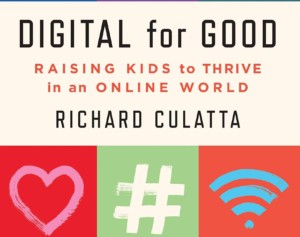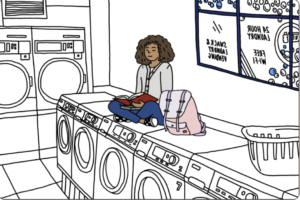Technology is Missing From Nation's Education Narrative
Tom Vander Ark of Revolution Learning and I were speaking recently around corporate interests in education.
One bright spot to this corporate interest in social movements is the Pepsi Refresh Project, which presents a broad list of categories to urge consumers / social media savvy constituents to choose where PepsiCo should donate its millions of philanthropic dollars each month.
I click on the Education tag often, and I have found some very interesting social efforts put to the civic community. So far, many of the front-runners are actual practitioners in education: teachers, librarians, students, school administrators.
That could be compelling evidence that someone is being left out of the dollars-for-education struggle — the people who do the work or use the education technology or dollars that would enhance the community chain’s performance.
There is interesting research to be done here, holding up the Refresh Project and the leaderboard to what is required in the U.S. Department of Education’s Race to the Top initiative. Here you have a somewhat real-time data feed of what is needed, and what is considered worthy of being “needy” for lack of a better word.
Drilling down into the data that’s available: The broader Pepsi Refresh leaderboard shows a few of the education projects are getting votes for funding, and but for one, they tend to be less about teaching, and more about facilities — I notice baseball diamonds, school playgrounds, etc.
Technology initiatives seem to not be listed as high, which is ironic, considering that for a social media platform, the Refresh Project would likely draw more tech-savvy initiators. Is there something missing in the national dialogue or the national narrative about American education and it’s true needs?
The one big US$250,000 project in strong contention for the US$250k prize is for sending better teachers into the school systems, something that the US Department of Education’s Race to the Top effort is already trying to do.
This is sponsored by a non-profit, probably the best known non-profit for teachers, Teach for America.
I choose not to be cynical about private and publicly-listed enterprises being invested in improving education, because I think that you can readily spot the difference between exploitation and socially responsible growth.
But when I see that non-profits are excelling at this other race for funds, I wonder if Pepsi is doing the right thing. And, I wonder if the American public, framed in the century-old narrative about education, that’s all about the reading, the writing, and the ‘rithmetic, is encased in this very old meme that teachers are first and foremost, and teachers will solve everything. Yes, and no.
I’d like to see more initiatives like the Nebraska technology request get prominence. Here, a teacher already practicing and teaching sixth grade knows what he needs to get his students up to speed. Technology helps. Technology is the future of our children’s interaction with the rest of the world.
Teachers are important, but they are bound to be heading into education anyway. We can’t keep enhancing education with only more teachers. We need to give them the tools that help them work better, and help their students develop into real productive members of society.







0 Comments
Leave a Comment
Your email address will not be published. All fields are required.